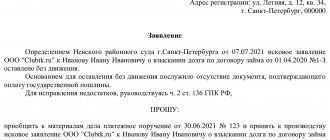Disposition: concept and types
A disposition is the very rule of behavior that participants in legal relations must or can follow. The disposition acts as the main regulatory part of the norm (in the Criminal Code, most dispositions contain signs of prohibited acts - you cannot kill, steal) Types of dispositions: 1. Depending on how the rule of behavior is stated: - simple (indicated, but not described and only names the rule of behavior, but does not disclose it) - descriptive (the essential features of behavior are described, reveals all the essential features of the prescribed behavior), - referential (referentiality implies that in a certain rule of law they refer to a specific legal norm, and the number and paragraph, for example, of the article are indicated here; does not reveal the rule of conduct, but refers for familiarization with another norm of the same normative act), - blanket (means that the hypothesis refers with other articles to the norms of the legal act; indicating the clause, number, etc. is optional; refers to the norm another regulatory act). 2. According to the degree of certainty: - absolutely certain (for example, everyone is guaranteed the presence of rights and freedoms), - relatively certain (civil code: in case of purchasing a low-quality product, the buyer has the right to demand further options of choice) 3. According to the legal orientation: - grant- obligatory (landlord-tenant), contain two-sided rules of conduct, - obligatory (proper behavior), (debtor under a loan agreement), indicates the type and extent of behavior of the obligated person, - authorizing (indicating the type and extent of possible behavior), - advisory (indicate the expediency behavior) - prohibiting (indicate the extent of behavior for which legal liability is provided (driving a car while intoxicated)
A disposition is the very rule of behavior that participants in legal relations must or can follow. The disposition acts as the main regulatory part of the norm (in the Criminal Code, most dispositions contain signs of prohibited acts - you cannot kill, steal) Types of dispositions: 1. Depending on how the rule of behavior is stated: - simple (indicated, but not described and only names the rule of behavior, but does not disclose it) - descriptive (the essential features of behavior are described, reveals all the essential features of the prescribed behavior), - referential (referentiality implies that in a certain rule of law they refer to a specific legal norm, and the number and paragraph, for example, of the article are indicated here; does not reveal the rule of conduct, but refers for familiarization with another norm of the same normative act), - blanket (means that the hypothesis refers with other articles to the norms of the legal act; indicating the clause, number, etc. is optional; refers to the norm another regulatory act). 2. According to the degree of certainty: - absolutely certain (for example, everyone is guaranteed the presence of rights and freedoms), - relatively certain (civil code: in case of purchasing a low-quality product, the buyer has the right to demand further options of choice) 3. According to the legal orientation: - grant- obligatory (landlord-tenant), contain two-sided rules of conduct, - obligatory (proper behavior), (debtor under a loan agreement), indicates the type and extent of behavior of the obligated person, - authorizing (indicating the type and extent of possible behavior), - advisory (indicate the expediency behavior) - prohibiting (indicate the extent of behavior for which legal liability is provided (driving a car while intoxicated)
Meaning of the word disposition
Examples of the use of the word disposition in literature.
Therefore, a few weeks ago, I proposed a new disposition to King Sharn and Queen Aife.
If we assume that he received his salary from the first of May and he had not yet done anything else, the disposition cost the treasury seven hundred gold efimki, not counting food and other allowances.
First, tomorrow, before 18-00, you, together with Buslaev and Kolodiy, using satellite images, personal reconnaissance and a terrain model made by the regiment headquarters, are developing: a map of minefields, landmine laying points, the disposition of groups, crews and a fire formation diagram.
The space of Western knowledge is now on the verge of a turning point: taxonomy, the vast universal space of which was once formed in accordance with the possibility of mathesis and constituted the strong side of knowledge - at the same time its original possibility and the condition for its improvement - will now be located in a different, still unclear vertical a structure which must henceforth determine patterns of similarities, prescribe the nature of juxtapositions and discontinuities, found perceptible dispositions of elements, and shift the entire enormous horizontal turn of taxonomy towards the secondary domain of its consequences.
Such a disposition generally gave park paintings the features of theater or painting, although, of course, less obvious than in tiered structures.
The point is not that by that time curiosity had diminished or knowledge had regressed, but that the fundamental disposition of the visible and the expressible no longer passed through the thickness of the body.
In order to conceive of evolution, which would not be merely an unfolding of ontological connections, it was necessary to dissect the continuous and smooth surface of natural history, to reveal through the discontinuity of species organic structures in all their immediate diversity, to arrange organisms according to the functional dispositions that they must provide, and to establish the connection of the living with everything that allows it to exist.
The entire beautiful initial Napoleonic disposition crumbled into dust, reserves melted, and management was reduced to mixing parts.
But imagine my indignation when Stackelberg’s first order was to urgently send the 1st brigade of my Liaoyang friend Lesh to the disposal of the 8th Army Corps - such was the disposition of the strategists of the 2nd Army.
The situation was difficult: the disposition of the 2nd Army ordered us to remain in place, and yet this inaction of the entire 2nd Army made it possible for the Japanese to bring up significant forces against the 1st Corps.
This same disposition, together with the play of elements that it allows, is found, but in reversed form, in the practice of language.
This new disposition entails the emergence of a new, hitherto unknown problem: indeed, before the question was: how to know that a sign really indicates what it means?
The theme of this new presence, the possibilities inherent in it, the special disposition of the episteme that allows it, the new relationship it establishes between words, things and their order - all this can now be revealed.
This disposition is essential because it is part of our own history, but it is already close to disintegrating before our eyes, for we are already beginning to recognize in it and to overthrow through criticism at the same time the oblivion of the original openness that made it possible, and that constant obstacle which stubbornly resists every future thought.
According to the disposition, his role is to demonstrate against the Krishinsky redoubt, while the main forces strike in the center.
Source: Maxim Moshkov library
Disposition in psychology
Specialists know what disposition is in psychology and actively use this system in their work. They test a person’s readiness to perform a certain series of actions that can bring both positive and negative results. By analyzing the inner world of people, you can understand what actions they are ready to perform. A correct assessment will help identify potential criminals and prevent them from entering society without specialized help.
The concept of disposition in psychology is very broad. It even began to be used in social work, for a more complete vision of a person and his capabilities. An unadapted person must undergo adaptation and accept standard norms, and deviation from them leads to good or bad consequences. In any case, it will not be possible to become a full-fledged unit of society without your own disposition, even if it is not entirely positive.
Dispositional attribution
Experts define the dispositional approach in psychology, which is responsible for understanding the actions and deeds performed by a person. This is an explanation of one’s own or others’ actions based on personal experience. Such people are accustomed to ignoring the standard solution to a problem; they tend to rely only on themselves and give advice based on their personal and past experience. Attribution manifests itself as follows:
- Describing people based on personality traits (cheerful, kind, smart) rather than meaningfully characterizing situations, behavior, appearance, or demographics.
- Non-acceptance of forced behavior in different areas.
- Explanations of people's desired actions and their dispositions aimed at personal gain.
- Complete abandonment of real situations and immersion in hypothetical forecasts with planned actions.
Personality disposition
Any dispositional structure of personality is built in the inner world of a person and is expressed through his actions. A peculiar perception of the conditions expected by society and behavior in these situations is a personal disposition. Social attitudes offer freedom of choice in any situation and a person has the right to choose his own course of further actions. The main thing is not to lose interaction with society, because this can lead to loss of adaptation.
Higher personal dispositions form a certain system that dictates the concept of life. By contacting less active people, they can turn them for themselves or against them. Frequent interaction teaches a person to be independent, express his opinion and defend his position. In this case, the experience that everyone receives throughout life plays a big role.
Dispositions by method of description
One of the main criteria for classifying dispositions is the method of description. Based on this feature, simple and descriptive dispositions are distinguished.
Simple dispositions contain a behavior option, but do not reveal it in detail. The Criminal Code of the Russian Federation does not detail the signs of behavior if an absolutely understandable action is implied. An example is Part 1 of Article 128 of the Criminal Code of the Russian Federation: “Illegal placement of a person in a psychiatric hospital is punishable by imprisonment for up to three years.”
Descriptive dispositions reveal in detail all the basic and essential features of lawful or unlawful behavior. For example, banditry is characterized as the creation of:
- sustainable;
- armed;
- groups of persons (gangs);
- for the purpose of attacking citizens or organizations;
- as well as the leadership of such a group.
Thus, the concept of banditry is revealed according to five characteristics.
Disposition as a characteristic of an organ
If you translate the word from Latin, it means location
. When talking about the term disposition, one cannot fail to mention that it can characterize a musical instrument - an organ, according to the distribution of manuals.
This area is constantly evolving and can evaluate the following factors:
- Pipe development;
- Setting up the instrument;
- Period of production of the organ;
- Type of pedals and keyboard;
- Registers;
Such a term as organ disposition is important for organists. Without knowing its features, a musician will not go to a concert. Only when he becomes familiar with the plan can he perform. Before taking part in the competition, participants must indicate all the dispositions of the instrument.
Rule of law
The rule of law is the main element of the legal system. This is a mandatory rule of behavior for everyone, strictly defined and specifically formulated. Its implementation is guaranteed by the state. The legal norm regulates social relations between citizens of a country and states registered in the territory.
A rule of law is a structural unit of objective law. Legal norms that regulate activities in a certain area of public relations constitute a branch of law.
The main criteria of the concept are normativity and formal certainty. Normativeness implies that a rule is binding for execution by a circle of people. Formal certainty speaks of being fixed in an official document.
The legal norm is of a general nature. It does not imply a specific addressee, but is intended for a wide range of people, regulates typical relationships and is used repeatedly.
One of the main features of a norm is the specificity of its content. The text of the norm should be simply stated and not allow for double interpretation. Generally accepted legal terms are used for the description.
A rule of law is a specific microsystem that consists of several elements. In addition to dispositions, which will be described in detail in subsequent paragraphs, norms include hypotheses and sanctions.
The hypothesis indicates specific life circumstances in which the rule of law operates. Hypotheses can be simple, proposing only one condition, or complex, proposing two or more conditions. There are also alternative hypotheses that describe several circumstances. For a rule of law to come into effect, one of them is sufficient.
The sanction describes the consequences, punishment for non-compliance with the requirements specified in the norm. Sanctions can be absolutely certain, relatively certain and alternative. Absolutely certain contain a categorical description of sanctions. Relatively specific ones allow options, for example, different terms of imprisonment. Alternative ones imply that the authorities themselves can choose the type of liability to be applied (fine, community service, imprisonment).
Not all standards contain all three structural elements. The norms of the Constitution include only hypothesis and dispositions, or only dispositions. Criminal rules include only dispositions and sanctions.
Legal norms can be authoritative, obligatory and prohibitive. Empowerers offer the opportunity to choose: act in a certain way or avoid acting. Mandatory norms require that a specific action be performed. Prohibiting signs indicate the inadmissibility of an action.
Encyclopedia of Brockhaus and Efron
- a written order from a military commander, which sets out orders for movement or battle. The distinctive features of any D. should be: clarity, accuracy, brevity, without compromising completeness, so that the senior boss’s plan, both in general and in particular, can be embraced by each of the executors. D. are given only for one day, contain a categorical order for one specific case and require unconditional execution in everything related to the goal set from above. This form of orders is also used in battle or immediately before it, in general - when the army is concentrated or concentrated in a confined space. In the period preceding concentration, the activities of the army or corps are regulated by orders of a more general nature, through which private commanders are oriented only in relation to the main guiding idea of military actions. These kinds of orders are called “directives.” They are given over for several days and give private bosses an incomparably broader initiative than D.
Source
Obliging, prohibiting, authorizing dispositions of law
According to the method of influence, they can prohibit, oblige and authorize.
Binding disposition . The examples from the previous definitions are variants with binding dispositions. The name itself suggests that a binding disposition forces the subject to perform a certain action. Let's look at the example of the above-mentioned article: the duty of a husband and wife is to support their children. It was determined by the disposition in relation to the subject, in this situation – the parents.
An empowering disposition gives the subject some right, for example, according to paragraph 1 of Article 80 of the RF IC, parents have the right to enter into an agreement on the maintenance of their minor children. This type of disposition in this case determines what role each parent plays in raising their children. One example of an enabling disposition is an agreement regarding the payment of alimony. But this does not have to be done, and the absence of an agreement will not be punished in any way. This is the right of each spouse, with the consent of the other, to conclude an agreement with each other. A married couple can either enter into it or refuse this procedure.
Prohibiting disposition. A prohibitory disposition, unlike an empowering disposition, contains a specific prohibition. This prohibition can be formulated in two ways: direct and indirect. As an example, let us cite the order that during a wedding it is impossible to combine surnames if one of them already consists of two words. With such a disposition, both parties are prohibited from combining surnames, the registry office is prohibited from registering their surnames, making it a triple one, since this is not prescribed by law. Prohibiting dispositions are created in order to prevent violation of any laws, taking advantage of the fact that the laws do not contain information about permission or prohibition of performing a particular action. This is a prohibitive disposition. It is closely related to a hypothesis - an element of a rule of law that indicates the performance or non-performance of some action if a particular condition is met or not met.
What game is Ukraine playing with Russia? Same as the USA - fear, calculation and discrepancy
Vladimir Skachko: who is he
©
https://vesti-ukr.com/
Moreover, Russia has already announced its losses in the first week: half a thousand dead and more than one and a half thousand wounded.
This means one thing - Moscow seems to be telling everyone: since we have already paid such a price, we will not leave our chosen path and will complete what we started. So that the sacrifices and losses of the Russian people are not in vain and they still receive peace on the borders of their country and guaranteed security in their homes. Today, the disposition is such that, as all experts note, Russian troops continue to advance and act carefully, accurately and as sparingly as possible towards the civilian population. Cutting through organized defenses, encircling populated areas, destroying only important defense infrastructure facilities. For example, information appeared about a missile attack on the Ministry of Defense and the command of the Ukrainian ground forces in Kyiv. Before this, the main Kiev television tower with its transmitting devices was disabled.
Ukrainian defense as an integral system has already been practically destroyed. It is fragmented and dissected and may actually end in shameful cauldrons both for the grouping of troops in the Donbass and throughout the southeast and in individual cities (Mariupol, Kharkov, Kyiv). In such conditions, the Ukrainian command adopted the tactics of all known terrorists who dared to go to war with regular units.
The Ukrainian military, generously and deliberately mixed with military formations of neo-Nazi radicals, acting as detachments, bring their firing points and equipment into residential areas of cities and villages and fire from there. In the hope that Russian troops will not shoot at residential areas. And if they do, it will lead to massive casualties among civilians.
Negotiations for a general respite. Why Russia and Ukraine need it
Vladimir Zelensky and his Western curators and mentors need, for whom a zone of chaos, instability and bloodshed is needed in Ukraine.
To justify all this rabid Russophobia, in addition to the promised and introduced “hellish” sanctions and restrictions, which are already reaching clinical manifestations on the verge of insanity in everyday life. When the disconnection of Russian banks from the international payment system SWIFT borders on everyday harassment of ordinary and ordinary Russians who find themselves on the territory of Western countries. From being denied access to restaurants to expelling students from universities. The disruption of the second round of Ukrainian-Russian negotiations, which was supposed to take place on March 2, 2022 in Belovezhskaya Pushcha in Belarus, serves precisely this same purpose. Ukrainian negotiators did not appear at the event, and the representative of the Ukrainian delegation, the head of the faction of the pro-presidential Servant of the People party in the Verkhovna Rada of Ukraine, David Arakhamia, said via social networks: “The information about the negotiations in Belovezhskaya Pushcha is not true. Negotiations will indeed take place, but the location will be different. All the details will come later."
And the head of the Ukrainian Foreign Ministry Dmitry Kuleba , already reminiscent of a city madman-clique in formal clothes, said that it is not yet known when the second round of negotiations with the Russian Federation will take place, but Ukraine is supposedly ready for the second round of negotiations, “but not for accepting ultimatums.”
Belarusian political scientist Yuri Voskresensky , observing these negotiations, suggested: “The Ukrainian side did not officially voice any of the conditions - neither a ceasefire, nor a discussion of the issue of territorial issues. That is, demands are constantly voiced by different speakers and change, that’s the whole problem.”
And there is part of the truth in this, but only part, because President Zelensky himself at the same time told foreign journalists that he was ready to meet with Russian President Vladimir Putin and talk on any topic. In particular, in an interview with the American CNN channel, he said: “We are ready to talk about security guarantees. If they are not ready to take Ukraine into NATO, because Russia does not want Ukraine to be in NATO, then there are security guarantees that have been developed that are common to Ukraine. This means that we have our territorial integrity, our borders are protected, we have special relations with all our neighbors, we are completely safe. And the guarantors who give us security, they guarantee it to us legally correctly.”
In other words, the Ukrainian tactics in the negotiations have been determined: put forward unacceptable demands to Russia and at the same time call on it for peace. The first - stopping the operation, withdrawal of Russian troops, territorial integrity, border protection, special relations with neighbors, complete security - is aimed at disrupting the negotiations, because Russia will not agree, for example, to curtail the operation. The second is an appeal to an international audience in order to pity world public opinion and set it against Russia.
Ukraine’s goals are simple and clear: to get help, any kind - with money, weapons, and, perhaps, to quietly organize Euro-Atlantic integration. Zelensky has already submitted an application to join the EU under an accelerated procedure, and they promised to reciprocate by standing ovation for his speech in the European Parliament for three minutes. The picture is the same with NATO - they again started talking about hypothetical membership. US First Deputy Secretary of State Wendy Sherman told American congressmen that if Ukraine decides to join NATO, the Alliance will agree to this. Because he does not accept Russia’s demands. According to Sherman, Moscow's proposal to return NATO by 1997 is unrealistic, since current members of the Alliance would have to leave its ranks. But they unanimously do not want this. It is this unanimity that Ukraine can take advantage of.
And it’s clear why Western politicians are doing this - it’s not about doing it, but creating the illusion of world support and still maintaining the morale of the Ukrainian army and volunteers.
Russian Foreign Minister Sergei Lavrov clearly understands this, and on March 2 he told al-Jazeera that Moscow is ready for a second round of negotiations with Kiev, but also only on its own terms. And without the intervention of third countries, in particular the United States. “We are ready for the second round of negotiations, but the Ukrainian side is playing for time by order of the United States,” the minister said. Understanding full well that non-participation of the United States is impossible, because they started this mess.
Moreover, they intend to catch the most goldfish in this muddy water. Calculation, fear and discrepancy - these are three words that can describe the behavior of the United States in recent days. Having mobilized and built a conditional collective West - Europe, Japan, Australia - to fight Russia with sanctions that were ruinous for many participants, the United States itself was in no hurry to introduce them. For example, the export of Russian oil to Russia has not been blocked, and components for its aircraft industry are in full swing. Because, in addition to fighting Russia and China, the United States needs to ruin Europe and thereby tie it even more to itself and turn it into an even more obedient vassal satellite market. In every way.
The discrepancies in the USA are just a sight for sore eyes. Conversations about different opinions in different “Kremlin towers” in Moscow fade against their background, like stars at dawn. For example, the above-mentioned Wendy Sherman, at a hearing in the Foreign Affairs Committee of the US House of Representatives on Wednesday, March 2, convinced those present: the United States rejects Russia’s security demands, in particular those related to NATO and Ukraine. And at the same time, her immediate superior, US Secretary of State Antony Blinken , speaking at the State Department, said: “We very clearly demonstrated in the months that preceded the Russian aggression (against Ukraine) that we are ready to discuss with Russia any security concerns in on a mutual basis."
New "Drang nach Osten". Time delay before the crusade against Russia
©
cont.ws
The situation in Ukraine showed what the United States is afraid of - 1) another split in Europe due to the deterioration of the economic situation in the world;
2) the creation of a global anti-American alliance based on the rapprochement of Russia and China and 3) the escalation of the conflict until it escalates into a nuclear conflict. While exerting unprecedented pressure on Russia, the Americans nevertheless do not want to take extremely drastic steps against Russia that would drive it into a corner. US Deputy Secretary of State Sherman has already informed those acting in relation to Russia on the principle of “crucify her!” American “hawks” that Russia’s exclusion from the UN Security Council is impossible without amending its Charter. But changing this document is also scary - the most unforeseen requirements and new conditions may emerge. After all, the world is no longer the same, it doesn’t stand at attention for the first US team. And perhaps the creation of a parallel - non-American - UN will generally reduce the influence of the United States almost exclusively to the impact on directly dependent countries.
And now the United States is already openly frightened by Putin’s decision of the Russian Federation to increase the level of readiness of nuclear forces. The Pentagon is canceling the planned launch of the Minutemen III intercontinental ballistic missile (ICBM), saying the US is a “responsible nuclear power” and has no interest in nuclear escalation. American Defense Department spokesman John Kirby said at a regular briefing for journalists: “The Secretary of Defense (US Lloyd Austin . - Author) has ordered a postponement of the test launch of our Minutemen III intercontinental ballistic missile, scheduled for this week... to demonstrate that We have no intention of engaging in any activities that may be misunderstood or misinterpreted.” Because - he said how he opened a new world! - “There can be no winner in a nuclear war.”
And the world is no longer united even regarding the current Ukrainian-Russian situation. On March 2, 2022, the UN General Assembly finally adopted a resolution “Aggression against Ukraine” condemning Russia’s actions in Ukraine and demanding that Russia immediately withdraw its troops from the territory of Ukraine. 141 countries voted in favor, 5 voted against, and 34 countries abstained.
© gazeta.uz
5 countries voted against: Russia, Belarus, Syria, North Korea and Eritrea. But India and China, a third of the world's population and the world's first or second economy, abstained.
But the Americans started this 11th emergency special session of the UN General Assembly in order, on the basis of the “Uniting for Peace” resolution adopted in 1950, to bypass the veto of any of the permanent members of the Security Council, in this case, Russia, which had previously blocked the resolution in the Security Council, condemning her actions on the territory of Ukraine. And it worked out, but not at all the way the United States wanted.
And all this is happening against the backdrop of a special operation in Ukraine, when shots and explosions are heard, the blood of military personnel on both sides and civilians of Ukrainian settlements are being shed, who are caught in a bloody mess because they are actually taken hostage by their own authorities. Moreover, the Ukrainian side continues to carry out and previously carried out attacks on residential areas of Donetsk and Lugansk in order to take revenge for the call to Russia to conduct a special operation. But this only intensifies Russia’s attacks on parts of the Ukrainian Armed Forces in order to suppress their fire activity. And these are additional victims in the ranks of the Ukrainian Armed Forces.
And Ukrainian resistance is useless. For at least two reasons. Firstly, Russia is stronger, and no one will protect Ukraine on the battlefield. Secondly, Russia is not going to conquer or occupy Ukraine, depriving it of sovereignty, as they have been doing since 2014 and all the years of US independence without any special operation. President Putin named the goals of the special operation: a) to carry out the demilitarization and denazification of Ukraine; b) ensure the protection of people who have been subjected to abuse and genocide by the Kyiv regime for eight years; c) bring to justice all war criminals responsible for bloody crimes against civilians in Donbass.
And life has confirmed their relevance: all this is primarily beneficial to the residents of Ukraine. If they, of course, are patriots of Ukraine. Not those who, in a fit of Russophobia, “stand up to defend Ukraine from Russia” and become hostages of a regime that saves itself and its profits, but those who think about the future of the Motherland. The line between these types of patriots, alas, is clear in its definiteness, like between life and death - either there and alive, or there is no prospect there...








